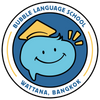We often hear people say,
“It’s easier to learn a language when you're a child.” While it's true that children’s brains are wired for language absorption, that doesn’t mean adults can’t learn — in fact, adults have some big advantages.
Here’s how adult learners approach languages differently — and how you can turn those differences into strengths.

🧠 1. Adults Learn with Purpose
Unlike kids, who learn through immersion and play, adults usually have a clear goal — for travel, work, or relationships. This focus can actually help you stay motivated and consistent.
📚 2. Adults Use Logical Thinking
Adults are better at understanding grammar rules, comparing structures between languages, and analyzing meaning. You may not “absorb” it like a child, but you understand it deeply — and that matters.
🗣️ 3. Adults Have Richer Life Experience
You've got more context — cultural, emotional, and situational — which helps you grasp real-world meaning faster. For example, a business owner learning negotiation phrases will instantly recognize how to use them in real scenarios.
😅 4. Adults Worry Too Much
Many adult learners feel shy about making mistakes. But remember: language is about connection, not perfection. Embrace small errors — they’re signs of progress.
💡 Tips to Make It Easier:
-
Focus on communication, not perfection.
-
Use tools you enjoy: YouTube, podcasts, TV shows.
-
Practice speaking early, even if it feels awkward.
-
Find a friendly, flexible teacher who understands your pace.
Whether you're learning Thai or English, remember: you're not late — you're ready. You have the mindset, maturity, and motivation to succeed. Age isn’t a barrier — it’s a secret advantage.
